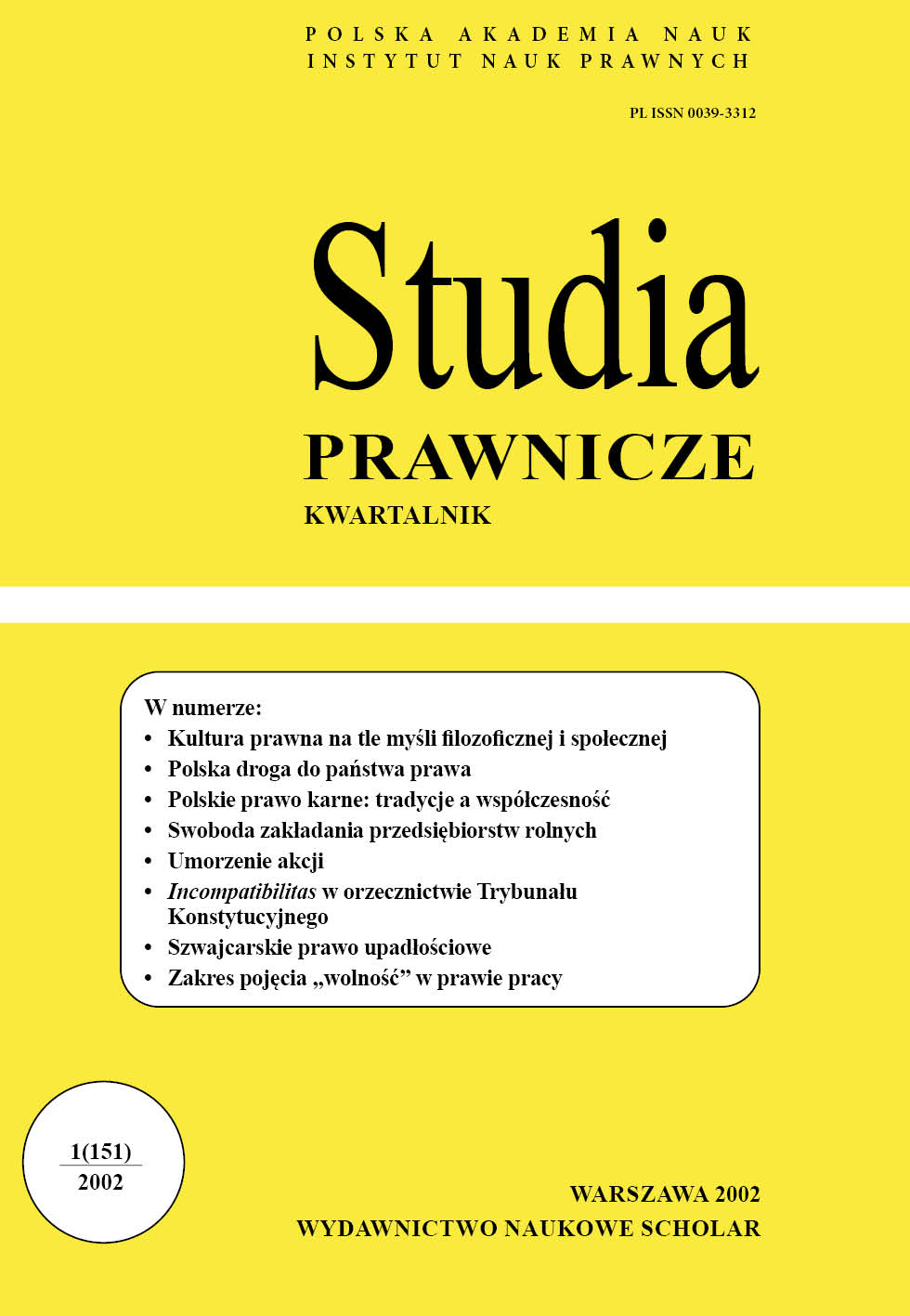Swoboda zakładania przedsiębiorstw rolnych oraz świadczenia usług rolnych w ustawodawstwie wspólnotowym
Freedom to set up agricultural undertakings and to provide agricultural services in Community legislation
Author(s): Alina Jurcewicz, Elżbieta TomkiewiczSubject(s): Law, Constitution, Jurisprudence
Published by: Instytut Nauk Prawnych PAN
Keywords: services agriculture; European Communities law; economic freedom; agricultural enterprise
Summary/Abstract: If the legislation of the host country subjects agricultural activities on its territory to certain restrictions or formalities justified on grounds of general interest, then [in compliance with Article 5(1) of Council Directive 63/261] the same rules will apply to farmers from other member states. Ensuring equal treatment of foreign citizens undertaking independent agricultural activities should be understood very broadly, not only in a formal legal sense, but also at the level of the practice of State bodies.The imperative of national treatment with regard to the financial assistance provided to foreigners taking up an agricultural activity in another member state [deriving from Article 4(b) of Council Directive 63/261] should be seen much more broadly, not only as a guarantee of equal conditions of access to credit, but also as a prohibition of any form of financial (or other) aid to one's own nationals that might prejudice the exercise of freedom of establishment in the host state.The rules of functional interpretation dictate that [the right to join agricultural cooperatives on an equal footing with nationals, as provided for in Article 4(3) of Council Directive 63/261] also includes the right to belong to any agricultural organisation of a professional nature (e.g. agricultural producer groups). Indeed, membership in such organisations conditions the right to benefit from the benefits for agricultural producers set out in the CMOs, in accordance with the principle of national treatment.The provision of Article 2 of Council Directive 63/262 is not precise, as it speaks of uncultivated holdings, whereas it actually refers to uncultivated agricultural land, which is only one factor of an agricultural holding.
Journal: Studia Prawnicze
- Issue Year: 151/2002
- Issue No: 1
- Page Range: 49-61
- Page Count: 13
- Language: Polish

